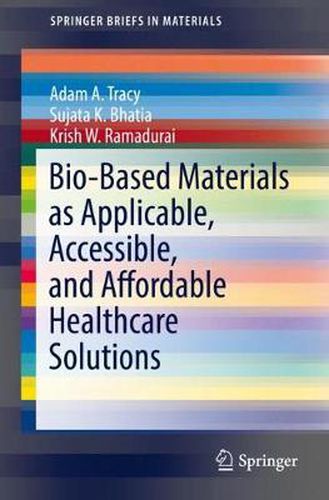Readings Newsletter
Become a Readings Member to make your shopping experience even easier.
Sign in or sign up for free!
You’re not far away from qualifying for FREE standard shipping within Australia
You’ve qualified for FREE standard shipping within Australia
The cart is loading…






This title is printed to order. This book may have been self-published. If so, we cannot guarantee the quality of the content. In the main most books will have gone through the editing process however some may not. We therefore suggest that you be aware of this before ordering this book. If in doubt check either the author or publisher’s details as we are unable to accept any returns unless they are faulty. Please contact us if you have any questions.
In this book, Nigeria, the most populous country in Africa and a region in the lowest income group per capita, is used to demonstrate the potential for healthcare reorganization and collaboration with the introduction of successful technologies centered around available, bio-compatible, and sustainable natural resources. Our book discusses three of the top killers of children under 5 years of age in Nigeria, pneumonia (20%), diarrheal diseases (15%), and traumatic injuries (4%). These conditions are used as examples to demonstrate the potential for improved pediatric outcomes with treatments engineered from sustainable and natural resources. Furthermore, this book outlines possible action items that can help drive economic growth, educational opportunities, collaborative outreach, and workforce productivity to build a healthy and sustainable community.
Medical technology in the industrialized world has seen rapid advancements leading to increased survival and greater patient outcomes. However, the development and implementation of these resources is not always applicable to regions in need of new and more basic ways to provide treatment. Moore’s Law, a paradigm that considers advancement synonymous with increased digitization and optimization of electronic processes, defines the history of technology. However, the functionality of advanced and smart technology is essentially useless in underdeveloped areas. These regions lack some of the basic requirements for innovative medical technologies to impact human health, such as electricity, access to spare parts, computer analysis tools, and network architecture. In addition, the poor physical infrastructure, insufficient management, and lack of technical culture are barriers for entry and sustainability of these technologies. Rather than importing medical devices from industrialized countries, we propose that the mindset and research focus for under developed areas must be on successful technologies. Simply put, these areas need technology that gets the job done.
$9.00 standard shipping within Australia
FREE standard shipping within Australia for orders over $100.00
Express & International shipping calculated at checkout
This title is printed to order. This book may have been self-published. If so, we cannot guarantee the quality of the content. In the main most books will have gone through the editing process however some may not. We therefore suggest that you be aware of this before ordering this book. If in doubt check either the author or publisher’s details as we are unable to accept any returns unless they are faulty. Please contact us if you have any questions.
In this book, Nigeria, the most populous country in Africa and a region in the lowest income group per capita, is used to demonstrate the potential for healthcare reorganization and collaboration with the introduction of successful technologies centered around available, bio-compatible, and sustainable natural resources. Our book discusses three of the top killers of children under 5 years of age in Nigeria, pneumonia (20%), diarrheal diseases (15%), and traumatic injuries (4%). These conditions are used as examples to demonstrate the potential for improved pediatric outcomes with treatments engineered from sustainable and natural resources. Furthermore, this book outlines possible action items that can help drive economic growth, educational opportunities, collaborative outreach, and workforce productivity to build a healthy and sustainable community.
Medical technology in the industrialized world has seen rapid advancements leading to increased survival and greater patient outcomes. However, the development and implementation of these resources is not always applicable to regions in need of new and more basic ways to provide treatment. Moore’s Law, a paradigm that considers advancement synonymous with increased digitization and optimization of electronic processes, defines the history of technology. However, the functionality of advanced and smart technology is essentially useless in underdeveloped areas. These regions lack some of the basic requirements for innovative medical technologies to impact human health, such as electricity, access to spare parts, computer analysis tools, and network architecture. In addition, the poor physical infrastructure, insufficient management, and lack of technical culture are barriers for entry and sustainability of these technologies. Rather than importing medical devices from industrialized countries, we propose that the mindset and research focus for under developed areas must be on successful technologies. Simply put, these areas need technology that gets the job done.